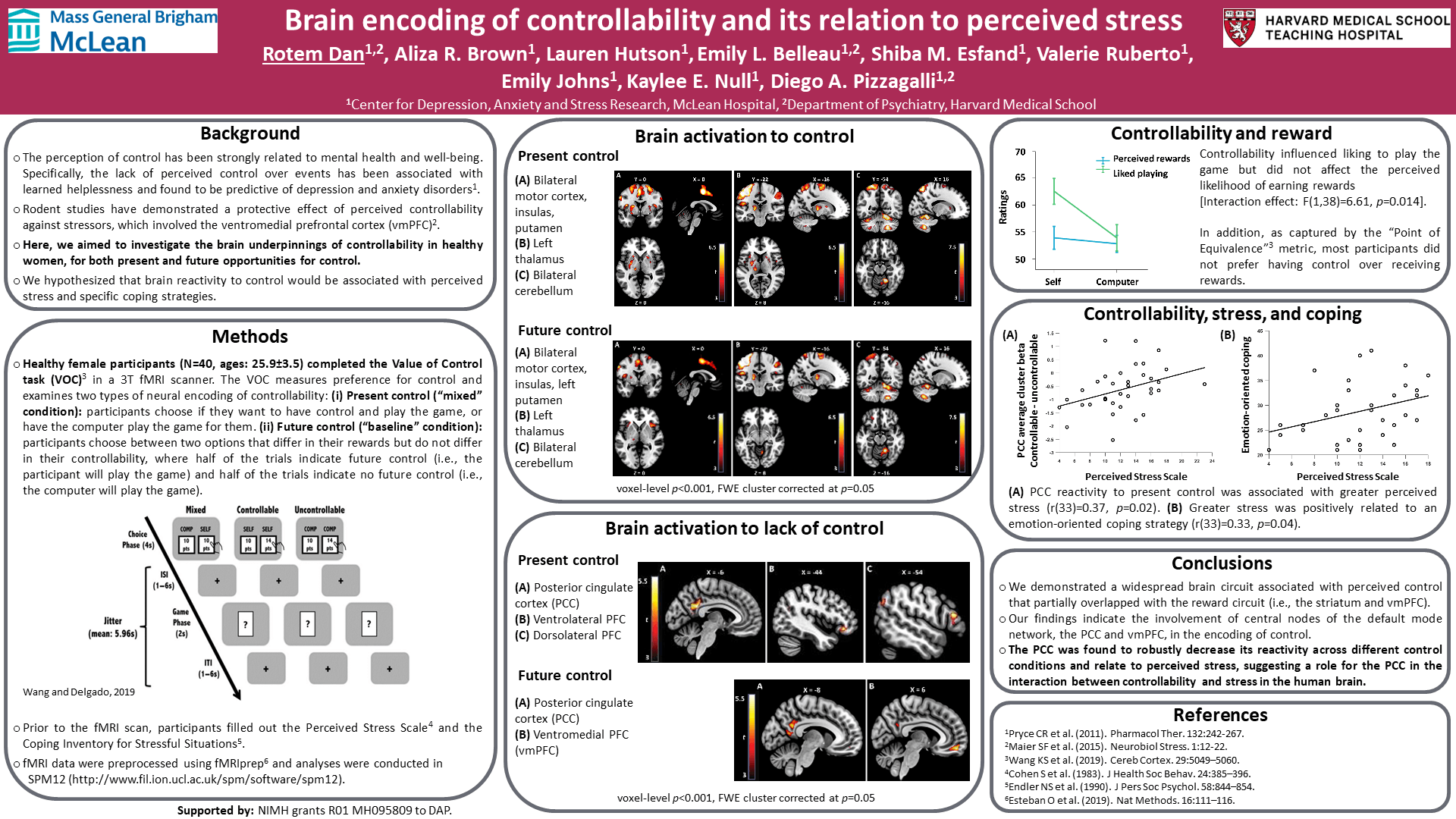Scientific Abstract
Background: The perception of control has been strongly related to mental health, with a protective effect of control against stressors. Here, we aimed to investigate the neural underpinnings of controllability and hypothesized that brain activation to control would be associated with perceived stress and specific coping strategies.
Methods: 40 healthy female participants completed the Value of Control task (VOC) in the fMRI scanner. The VOC measures preference for control and examines two types of controllability. (i) Present control: participants choose if they want to play the game or have the computer play the game. (ii) Future control: participants choose between two options that differ in their rewards but not in controllability. After the VOC, participants rated how much they liked having control and how much they believed they could earn rewards. Prior to the scan, participants filled out the Perceived Stress Scale and the Coping Inventory for Stressful Situations.
Results: Controllability influenced liking to play the game but not the perceived likelihood of rewards (F(1,38)=6.61, p=0.014). For both control conditions, increased brain activation to control was found for the putamen, insula, thalamus, motor cortex, and cerebellum. In contrast, the ventromedial prefrontal cortex (vmPFC) and posterior cingulate cortex (PCC) showed stronger reactivity to a lack of future control and the left dorsolateral PFC, left ventrolateral PFC, and PCC showed stronger reactivity when choosing not to have control. Increased PCC reactivity to control was associated with greater perceived stress (r=0.37, p=0.02). Moreover, greater stress was related to an emotion-oriented coping strategy (r=0.33, p=0.04).
Conclusions: We identified a widespread brain circuit associated with perceived control that partially overlapped with the reward circuit. In addition, our findings indicate the involvement of the default mode network in the encoding of control. In particular, the PCC was found to robustly decrease its reactivity across control conditions and relate to perceived stress, suggesting a role for the PCC in the interaction between controllability and stress in the human brain.
Search posters

